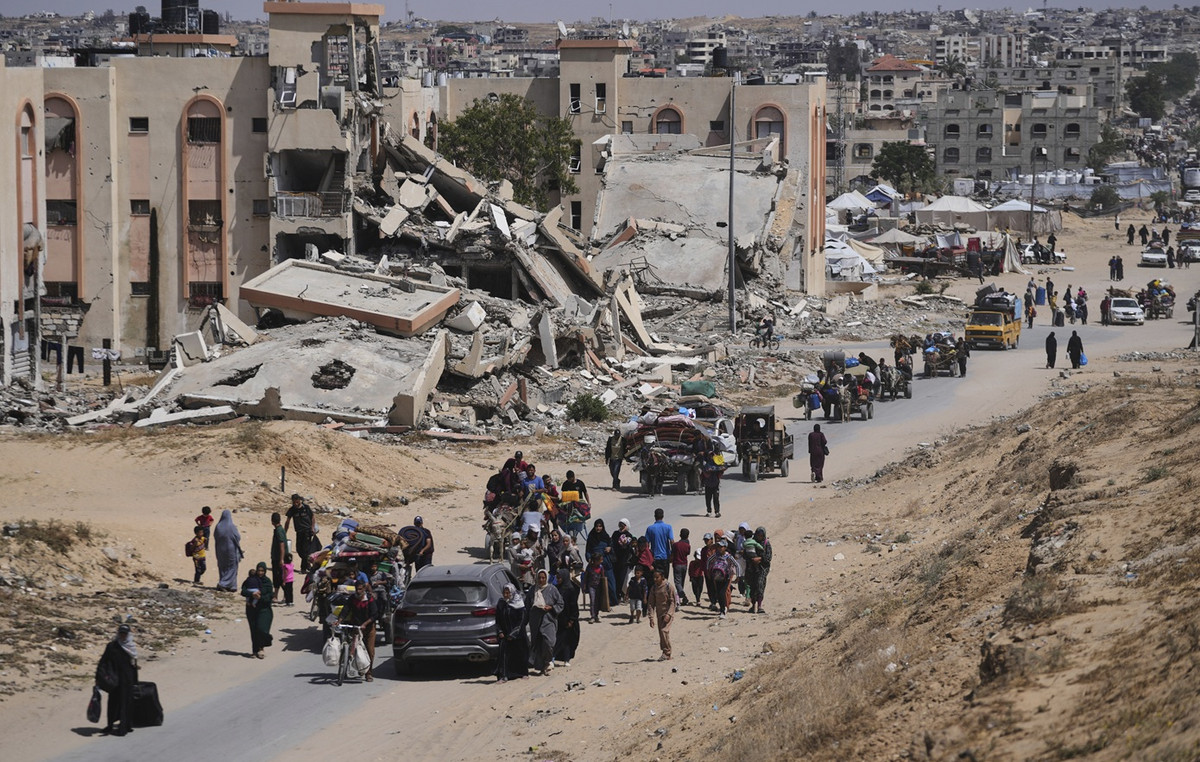In a few days, 40 days have passed since the death of Marietta Giannakou – today, Sunday, a memorial service will be held in her hometown, Sparta – and on this occasion, APE-MPE reminds some, recently and not, of her texts and interviews, which, if nothing else, demonstrate its political insight.
After all, her tenure as a member of the European Parliament for seventeen years, as well as that of the head of the Greek parliamentary delegation to the NATO Parliamentary Assembly (which was her last position), enabled her to have a good knowledge of foreign policy issues. European and wider international issues.
The challenge in Ukraine is reviving the Cold War
The small tribute of APE-MPE to Marietta Giannakou starts from her last article: on January 4, i.e. wrote in the Greek edition of the “Huffington Post” about the Ukrainian, the characteristics of modern Russia but also the European dependence on Russian gas – and all this almost two months before the outbreak of the Moscow attack.
Under the heading “The European confrontation with the Russian reality”, M. Giannakou noted about the Russian regime: now the economic conditions are more favorable than in the past.
Russia exports large amounts of energy, to the extent that Europe is dependent on natural gas. “It still has a powerful arsenal and is carrying out operations in Georgia, Ukraine, Syria, while for the first time in the post-war period it caused a change of borders (Crimea) in Europe.”
According to Giannakou, “President Putin has created a person-centered regime with successive constitutional revisions, which will give him omnipotence for about thirty years. He relies on anti-Westernism, even exploiting the Orthodox faith as an element of cohesion in Russian society.
It is clear that Europe has realized in time the limits of conciliation with Russia. “The most serious about European affairs had directly pointed out that the approach was groundless, let alone the over-optimistic view of EU membership.”
To the question, “if there is today a threat to security and peace, and energy security in particular, but also another kind of hybrid threat” from Russia, he answered as follows: “The challenge in Ukraine, the management of energy resources and the “Documented cyberattacks and interference in third country elections are reviving some of the fears of the Cold War.”
In conclusion, “today we are called upon to assess the level of threat that this country poses to Europe, but also to assess the evolution of the regime after Putin, whenever it disappears politically. Because such regimes may have even greater consequences. at the critical moment of the redistribution of power.
The debate in NATO on the new strategic doctrine and operational development is at a mature stage. “Leaders in America and in European countries now have a strong understanding of their potential, and of the measures needed to maintain peace in Europe,” she concluded.
European security strategy
Related to the above text is an older article in “Kathimerini” this time, on June 23, 2019, on the “European security strategy”, in the middle and in the light of Donald Trump’s term.
In particular, “the question of Europe’s relationship with Russia is open to many approaches (nuclear safety, energy dependence, etc.) and will be a key parameter for security in the coming decades.
The crucial question we all need to address is: Is there a security gap in Europe today, and if so, what is the threat and how can it be addressed? “However, the prospect of setting up a single defense structure in Europe does not contradict the functioning of NATO,” he said.
“However, the burning issue is that a comprehensive defense policy for Europe means an increase in related expenditure that will exceed the current 2% of GDP per Member State. “For Health, Education and other welfare policies combined with the priority for balanced budgets, the prospect of increasing defense spending has obvious political costs”, wrote M. Giannakou, in a discussion that has become completely topical after the recent global developments.
At the same time, however, we must assess that given Brexit, 80% of NATO’s budget will come from non-EU countries, while the only nuclear power in the EU will be France. “Does this development have any effect on strategic planning in the security issues that we may face?”, is the question you asked, adding:
“Even if there is a stronger will for a European Defense Policy, this should not lead to overlaps, but rather to complementarity with NATO structures and planning. It is not just about leveraging NATO’s long know-how and experience. but also for the intention to make security in Europe a matter of transatlantic interest and responsibility. ”
Her conviction, after all, was that “we must resolutely design the security mechanism in Europe, maintaining the fundamental elements of the NATO organization, and at the same time creating new capabilities and defense mechanisms with increased utility on European soil and with a view to diagnosing possible emergencies.”
The formation of a Common Foreign and Security Policy (CFSP) and especially a Common Security and Defense Policy (CSDP), should be interpreted primarily as a consequence of the cosmogenic changes of recent decades in the international system and the new geopolitical role of the EU. . she will be called to take over sooner or later “, she also underlined in her article in” Kathimerini “.
Our differences with Ankara
We close the tribute to the deceased, with her views in Greek-Turkish, as listed on the website “The President” on January 18, 2021. On the occasion of the resumption of exploratory contacts between Greece and Turkey, which do not constitute negotiation between the two countries. . He added: “Two are the only issues that will be discussed. The demarcation of the maritime zones and the continental shelf. For these issues, mutual understanding is necessary, in order to proceed to the exact demarcation of the Exclusive Economic Zone, after the delineation of the seasickness zone “.
At the same time noting that “Greece has a strong deterrent force and full confidence in the combat readiness of the Armed Forces”, a determination that “was fully understood by Turkey, which failed to create de facto situations of questioning national sovereignty with the M. Giannakou also noted: “Greece’s international position is clearly improved. In addition to our self-evident flawless cooperation with European partners, the country now has strong military and diplomatic cooperation with countries such as “Israel, Egypt, Saudi Arabia and the United Arab Emirates. It is extremely important that the change in foreign policy is strongly supported by different governments and much of parliament.”
And, in “for these”, “all the above do not ensure the settlement of the Greek-Turkish issues. Nor do they anticipate a peaceful stance on the part of the neighbors. However, they create conditions for deterrence and a significantly higher cost for the side that will escalate the Despite the resumption of exploration, Turkey is almost certain to continue to violate its airspace and FIR, to insist on theories of “gray zones”, demilitarization of islands and revision of the Lausanne Treaty “As a result of multilateral negotiations beyond the two countries). These issues have no reason for the highly prestigious and experienced Greek delegation to accept for discussion”.
Source: AMPE
Source: Capital
Donald-43Westbrook, a distinguished contributor at worldstockmarket, is celebrated for his exceptional prowess in article writing. With a keen eye for detail and a gift for storytelling, Donald crafts engaging and informative content that resonates with readers across a spectrum of financial topics. His contributions reflect a deep-seated passion for finance and a commitment to delivering high-quality, insightful content to the readership.







